
Brown Coco Fiber
Get Price Quote
1 Ton (MOQ)
When it comes to being entitled as a Brown Coco Fiber Manufacturer, rest assured that you are with Manvi Agro Industries. This coco fibre brown is of the highest quality since it is obtained from the best coconuts and is very durable. Versatile Applications Our brown coco fibre is versatile and ideal for Horticulture Erosion control Soil conditioning Mulching Eco-Friendly Solution As an environmentally-conscious Brown Coco Fiber Manufacturer, we ensure our products are: ● 100% Natural ● Biodegradable ● Sustainable Benefits of Our Brown Coco Fiber Our brown coco fibre offers numerous benefits: Excellent water retention ● Promotes root growth ● Enhances soil aeration ● Long-lasting durability Why Choose Manvi Agro Industries? We stand out as a top Brown Coco Fiber Manufacturer because: ● Of course, we apply advanced technologies in our work. ● Also, we provide our services at a fairly good price. ● It is important to note that all these products we are dealing with are international. Contact Us To know more or order the above products please contact us on the website or Manvi Agro Industries. Visit the most preferred and reliable Brown Coco Fiber Manufacturer.
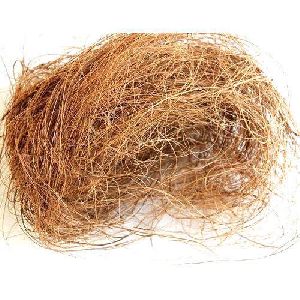
coco fibre
Get Price Quote
10 Kilogram (MOQ)
Best Deals from Coco Fibre
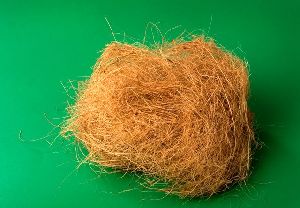
coco fibre
400 Per Ton
25 Metric Ton (MOQ)
Coco peat (coco-peat), also known as coir pith, coir fibre pith, coir dust, or simply coir, is made from coconut husks, which are by-products of other industries that use coconuts. Coir waste from coir fibre industries is washed, heat-treated, screened and graded before being processed into coco peat products of various granularity and denseness, which are then used for horticultural and agricultural applications and as industrial absorbent. Usually shipped in the form of compressed bales, briquettes, slabs or discs, the end user usually expands and aerates the compressed coco peat by the addition of water. A single kilogram of coco peat will expand to 15 litres of moist coco peat. The Advantage of COCO PEAT: The properties of Coco Peat make it resistant to bacterial and fungal growth. Coco Peat holds water rather than shedding it like traditional peat does! It holds 8-9 times its weight in water. Coco Peat has the ability to store and release nutrient to plants for extended periods of time. It also has great oxygenation properties which is important for healthy root development. Enhanced root penetration Coco peat extends the life of compost. Contains natural substances and beneficial microbes for plant growth The coco peat tends to expand in its volume, (i.e..,) Four to five times from its original volume provided. It has a pH of 5.2-6.8 which is neutral to slightly acidic. This makes it great for alkaline garden soils. Easy to use – Just put your compressed Coco Peat brick in a container, add 4 quarts of warm water and let it sit until the water is absorbed, fluff it up and you are ready to use Coco Peat! Coco Peat can be reused for up to 4 years. Coco Peat is very slow to disintegrate; it only begins to break down when it is 10 years old, long term benefits. It is very light and easy to handle. It can be combined with any of the normal ingredients and use as a mixer or a stand-alone product. Weed free, pathogen free, insect free and odourless Excellent medium for growing worms. It’s actually good for them and increases worm growth by 25%. Has high air-filled porosity Much lighter than soil Mixed with sand, compost and fertilizer to make good quality potting soil Environment friendly and non-hazardous How to use coco-peat: The normal use of coco-peat in foreign country are the use of coco-peat block form. Then if we need to expand the whole block later immerse the block in a large tub capable of holding at least 25 litres of water. Remove the wet expanded cocopeat that floats in the water. While continuing to add water to the tub till the complete block is expanded. The cocopeat in the bag are light in weight and easily transported to the nursery area or rain shelter greenhouse. For a large grower who needs to expand large number of cocopeat blocks, place the cocopeat blocks vertically with about 1 ft between them. Spray water from a hose on the cocopeat blocks while working on the blocks with hand to expand them into moist cocopeat. Another method is to use machinery to crush the block into powder and then use the dust. The use of low compression cocopeat for absorption purposes, normally we advise the farmers to simply break and crush the block into powder in the palm of your hand. This method practical for those fragile cocopeat either for locally produced cocopeat or imported cocopeat. The use of cocopeat for potting mix we advise the user to mix the expanded cocopeat with leaf mould or homemade organic manure in the ratio of 1:1. Add red soil or sand in small quantities for large plants, otherwise the cocopeat will not be able to hold the weight of the plants as they grow. Red soil tends to compact over time (despite the cocopeat), so take care not to mix more than one third of the mix. For germination, mix cocopeat, leaf mould and sand in the ratio of 1:1:1. If you are using commercial organic manure, it would be better to mix cocopeat and organic manure in the ratio of 10:1 as commercial organic manures are often of high strength. If the cocopeat are the hydroponics medium, the techniques for hydroponics it is better to thoroughly wash and buffer the cocopeat before use as most of the nutrient formula available on the web are not meant for growing in coir. First expand the cocopeat block as instructed earlier. Wash the expanded cocopeat in a large tub of soft water for a few minutes. Drain the water and repeat the process. If the cocopeat you bought is unwashed, you will have to repeat the process a couple of times more. Dissolve calcium nitrate in water in the ratio of 1 g per litre and allow the cocopeat to soak in the solution for 12 hours. Drain any remaining solution and wash the cocopeat again in soft water a couple of times. The cocopeat is now ready for use as a hydroponics medium. The use of cocopeat replaces the conventional use of topsoil as planting media. More new agriculture technologies are adapted and towards vertical farming system to increase per square meter productivity. The sowing technology today depends on cocopeat and peat moss as efficient and practical medium for seedling preparation.

COCO COIR FIBER WITH LATEX DISC
Get Price Quote
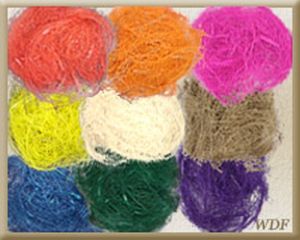
Decorative Coco Fibre
Get Price Quote
500 Piece (MOQ)
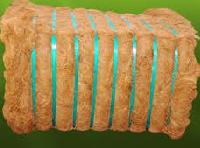
coco fibre
Get Price Quote
Common Name : Coco Fiber Type of Fibers : White Fiber & Brown Fiber Scientific Name : Cocos nucifera and Arecaceae (Palm) Size of Length : 5Cms to 10Cms 20% 10Cms to 25Cms 80% Packing Method : 100Kg Bales with plastic straps Moisture Level : Below 15% Special Quality : 100% without Braided Impurities : Less than 3% Loading Capacity : 188 Bales per 40� Container

coco fibre
Get Price Quote
Coir fibre or Coco fibre is the by-product of coconut coir processing. It is extracted from matured green and brown coconut husks. It is then processed into finest fibres which are utilized for the manufacture of mattresses, door mats, sacking etc. Coconut fibres are of two types: white and brown fibres. White fibres are processed from fresh green coconut and it’s finer than brown fibre. In geo-textile manufacture, they are used for bank stabilization and soil re-vegetation.

Coco Fiber
Get Price Quote
We are the main supplier of this product.
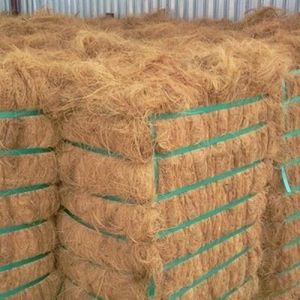
Coco Fiber
Get Price Quote
100 Kilogram (MOQ)
We are the main supplier of this product.
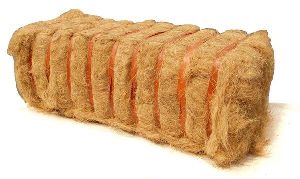
coco fibre
Get Price Quote
10 Metric Ton (MOQ)

Coco Fiber
30 Per Kilogram
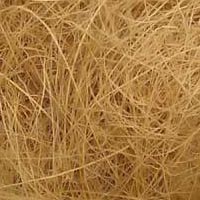
coco fibre
Get Price Quote
Coco Fibre is a by-product of coconuts and is extracted from the inner surface of the coconut. We export and supply high quality Coco Fibre to our esteem clients across the globe. We source Coco Fibre from the reputed and reliable vendors only. We offer customized packaging of Coco Fibre as per customers demand. Attributes : Eco friendlyBio degradableUsed in various applicationsStrong fiber

coco fibre
10 - 15 Per Kg
50 Ton (MOQ)
Coco fiber

coco fibre
Get Price Quote
We are leading exporter of coir fibre bales from india , If you need this product , Please contact us for domestic and international sales
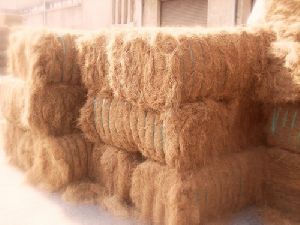
coco fibre
Get Price Quote
We are a quality driven and make sure that the offered lot is prepared using the premium grade raw material. Also, we make sure that it is sourced from the certified vendors. After the goods are sternly examined by the experts, the picking, checking, labeling and packing commences in the substantial warehouse. Sprawling over a large area, we ensure that the goods are packed with utmost proficiency.

Coco Fiber
10 - 15 Per Kilogram
1 Ton (MOQ)

Brown Coco coir Fiber
15 - 25 Per Kilogram
1000 Kilogram (MOQ)
Good quality brown coco fiber
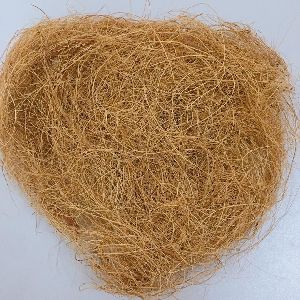
coco fibre
1 - 200 Per Kilogram
22 Ton (MOQ)
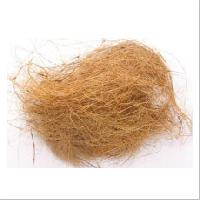
coco fibers
Get Price Quote
Customers highly prefer us because of our practice of delivering the orders in an organized condition and on time. We keep a stern check while the product is being developed to make sure that we deliver only flawless range.
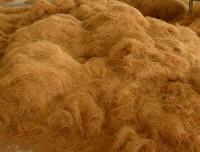
coco fibre
Get Price Quote
The fibrous husks are soaked in pits or in nets in a slow-moving body of water to swell and soften the fibres. The long bristle fibres are separated from the shorter mattress fibres underneath the skin of the nut, a process known as wet-milling. The mattress fibres are sifted to remove dirt and other rubbish, dried in the sun and packed into bales. Some mattress fibre is allowed to retain more moisture so it retains its elasticity for twisted fibre production. The coir fibre is elastic enough to twist without breaking and it holds a curl as though permanently waved. Twisting is done by simply making a rope of the hank of fibre and twisting it using a machine or by hand. The longer bristle fibre is washed in clean water and then dried before being tied into bundles or hanks. It may then be cleaned and 'hackled' by steel combs to straighten the fibres and remove any shorter fibre pieces. Coir bristle fibre can also be bleached and dyed to obtain hanks of different colours.